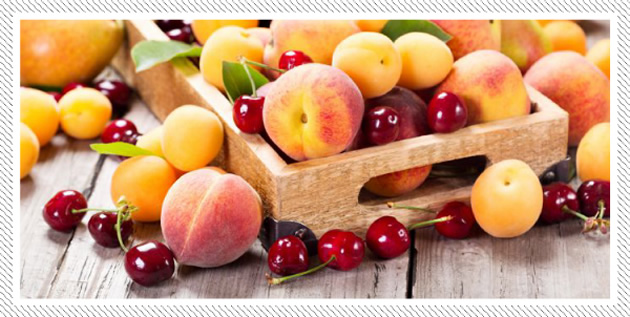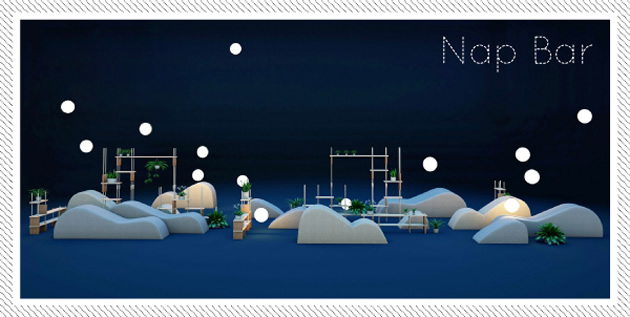
Among people with sleep disorders (about 13 million in Italy ), many claim that one of the causes could be bad eating habits , but few know that it is possible to counteract insomnia with proper nutrition. The right foods help regulate the pace while asleep or awake, producing serotonin and melatonin, which stimulates the body to resume the right pace between night and day.
You do not need to surrender to sleeping pills and drugs, try to fight the war on insomnia by aligning yourself with the table and changing your diet.
Let's see what are the allied foods for a good rest and which the enemy ones.
Allied foods
A MAGNESIUM deficiency can cause anxiety, agitation, nervousness, and insomnia, so consuming foods rich in this mineral, which promotes muscle relaxation, will help us rest better.
Among the magnesium-rich fruits, ecxels the apricot, which is considered to be the calmer of excellence thanks to its high content of magnesium (10mg / 100g) and potassium (320mg / 100gr.). In case of anxiety, depression and sleep disturbance it is a precious ally, besides this, being also rich in water helps to keep the body hydrated.
Bananas help muscle relaxation as they stimulate the body to produce serotonin, "the hormone of happiness", which promotes mental balance, improves mood and fights sleep disorders, all this thanks to a poker of substances such as vitamin B6, magnesium, potassium and tryptophan.
Cherries are also a natural source of magnesium (9mg / 100g), while peaches have good niacin content (vitamin B3), which helps keep the nervous system healthy. Thanks to this molecule with sedative effects, this fruit is a great ally against insomnia.
In the list of allied foods we also find almonds, with 264mg / 100gr. which become a fantastic snack to ensure the 25% of the magnesium we need. Equally, spinaches contain magnesium and are rich in chlorophyll, calcium, vitamin B6 and folic acid, all substances that promote muscle relaxation.
But the richest food in magnesium is absolutely the pumpkin seed that contrasts the hectic life and intense physical activity. If nervousness, anxiety and night-time awakenings are lurking, a handful of pumpkin seeds will decrease the tension gradually.
Another good tip is to drink at least 2 liters of water per day. Water is also rich in magnesium, which facilitates digestion, an action that will have certain results in sleep quality.

TRIPTOFANO is an essential amino acid that raises serotonin and melatonin levels in the brain, the hormone that induces drowsiness and regulates the sleep-wake cycle. Among the rich foods in tryptophan that help relax mind and body we find oats, a natural source of melatonin, rich in calcium and magnesium, mineral salts that promote relaxation. Oat also performs a calming action in the nervous system, managing to counteract the difficulty of sleeping. Even eating walnuts increases melatonin levels by helping us sleep better, just like sesame seeds, rich in tryptophan and carbohydrates, perfect to munch before bedtime.
Consuming rice at dinner, best if whole wheat, is a help to rest better. The merit of the suckling effects of rice would be attributed to its high glycemic index, which seems to increase the body's tryptophan levels.
Lifestyle to improve sleep quality
- 1. Adjust the sleep-wake cycle: wake up early in the morning, avoid sleeping during the day and go to bed early, avoiding stimulating activities in the evening.
- 2. Have a light dinner at least 2 hours before falling asleep.
- 3. Eat well balanced.
- 4. Do not use the bed for activities other than sleep, such as writing, watching television, using PC or other electronic devices.
- 5. Prefer relaxing activities before bedtime, such as having a hot bath or reading a good book.
- 6. Ensure that the sleeping environment is suitable for rest. Some people are very sensitive to light, others to noise. The bedroom should be a sanctuary, dark and silent, with an adequate temperature and well ventilated.
While Japanese are coming up with very bizarre solutions to overcome the problem of insomnia, “nap bars” are getting a foothold, tailor-made, silent and comfortable, thought to indulge in a regenerative nap out of the house; we advise to transform your bedroom in a retreat dedicated to relaxation.

